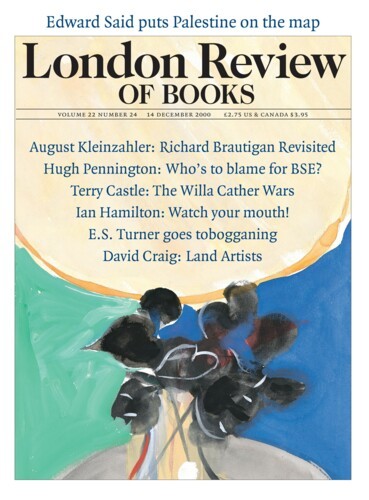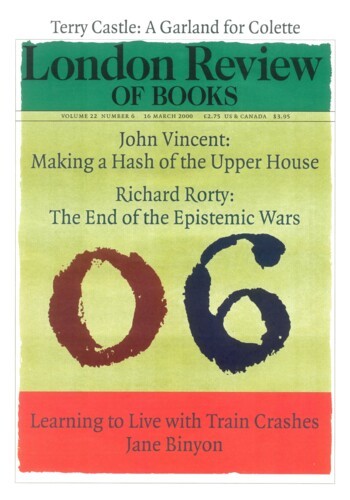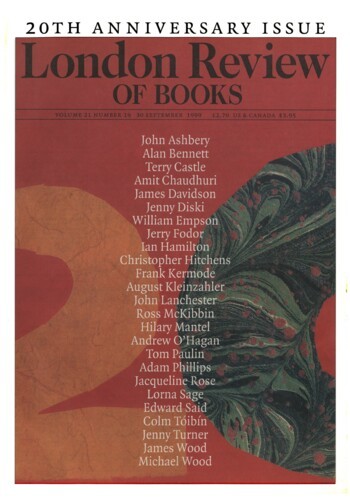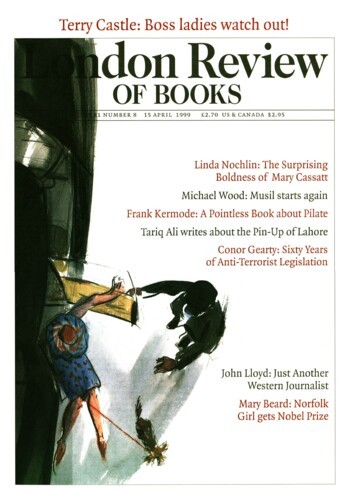Courage, mon amie: Disquiet on the Western Front
Terry Castle, 4 April 2002
You speak like a green girl,Unsifted in such perilous circumstance.
Hamlet, I.iii.101-2
Ayear ago this past autumn – a year before the old life so shockingly blew away – I made a long-contemplated trip to France and Belgium to see the cemeteries of the First World War. My quest, though transatlantic, was a modest, conventional and somewhat anorakish one: I hoped to locate the grave...





